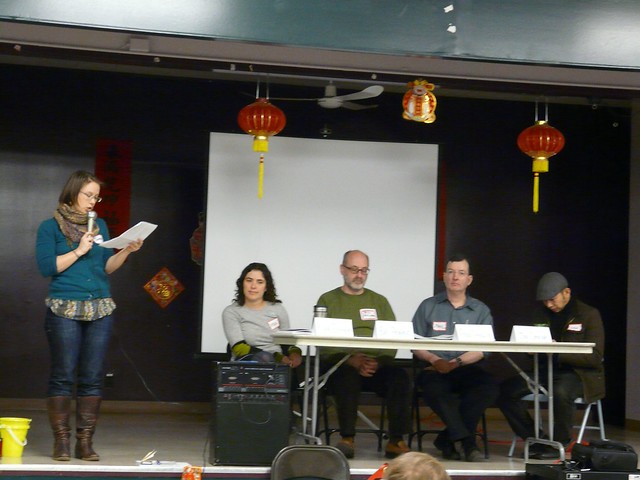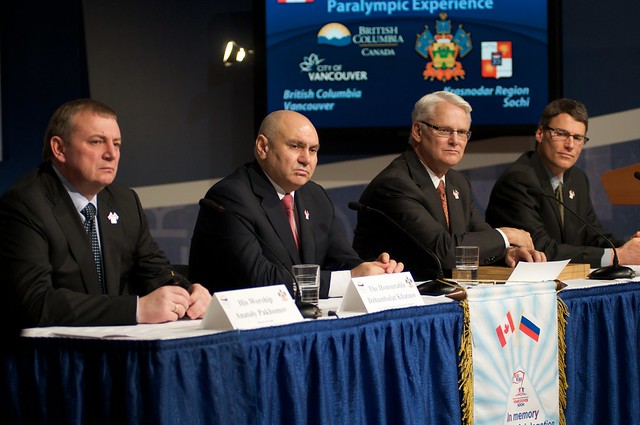
In a report to the Coalition of Progressive Electors (COPE) members this weekend, Canadian Union of Public Employees (CUPE) representative Bill Pegler delivered a strong statement of support for Vancouver’s newly-elected city council. Despite COPE losing all of its council and parks board seats, and all but one school board seat, CUPE has declared the November elections a victory. “For CUPE, the 2011 elections were a success,” Pegler said to a crowd of 100 COPE members gathered at the Hastings Community Centre to debrief the 2011 Vancouver civic election. “The overall goals of CUPE have been met.”
Because COPE accepts few corporate donations, the party relies on unions for the vast majority of its funding. In the 2008 civic election, 80% of COPE’s $350,000 in campaign contributions came from unions, including a full 50% from CUPE locals alone. At the other side of the equation, Vision has identified CUPE as an important piece of the puzzle for electoral success in Vancouver, both in terms of financial donations (CUPE donates more to Vision than to COPE), and in terms of Vision’s ability to secure control over the COPE Executive via its financial donors.
Pegler’s comments send a strong signal to Vision that they should continue the electoral alliance with COPE to keep “the party of renters” in the position of being alive but without seats on council. The comments also signaled to COPE that in order to survive within their current funding structure, COPE volunteers must continue working to elect representatives of CUPE’s preferred party.
While CUPE donates heavily to Vision Vancouver, the majority of Vision’s funding comes from developers. This is due to the fact that city council’s biggest job is to regulate land use — and therefore property values and rents. Under Vision, the city will remain steadfastly right-wing on these core issues, with the result that Vancouverites — including CUPE members — will spend more and more of their incomes on sky-rocketing rents and land values. By considering Vision’s victory a success, CUPE is making the choice to neglect the key issues of affordability, housing security, and public transportation.


